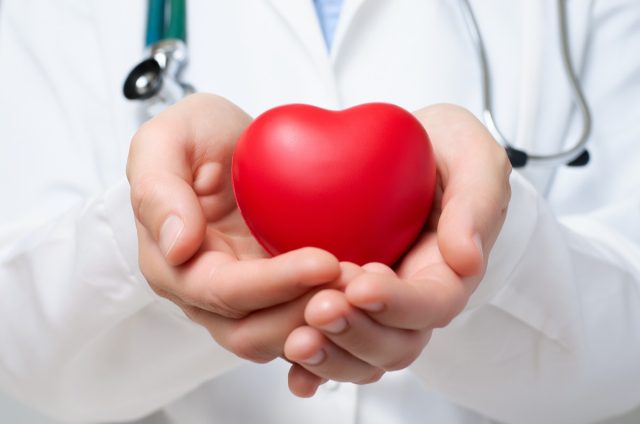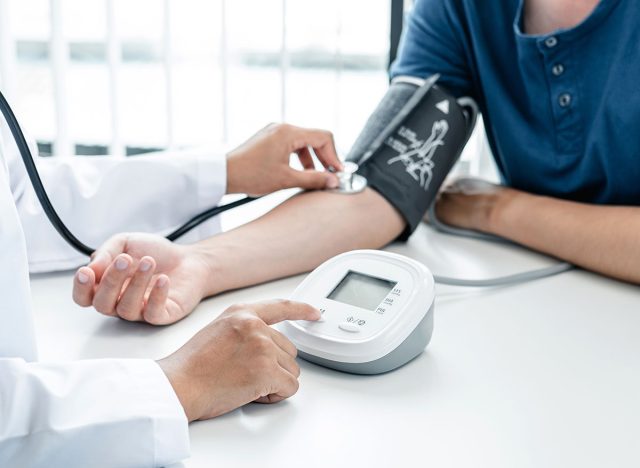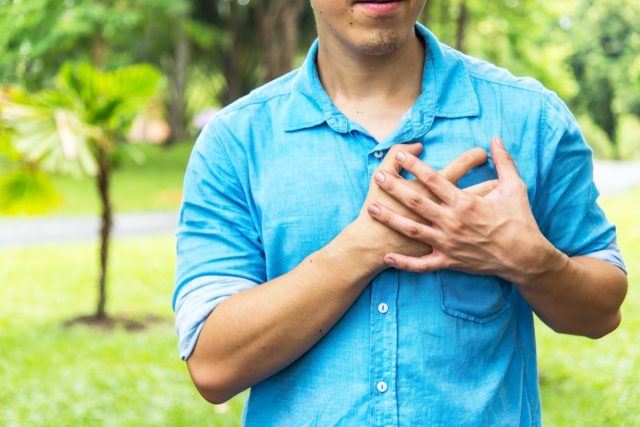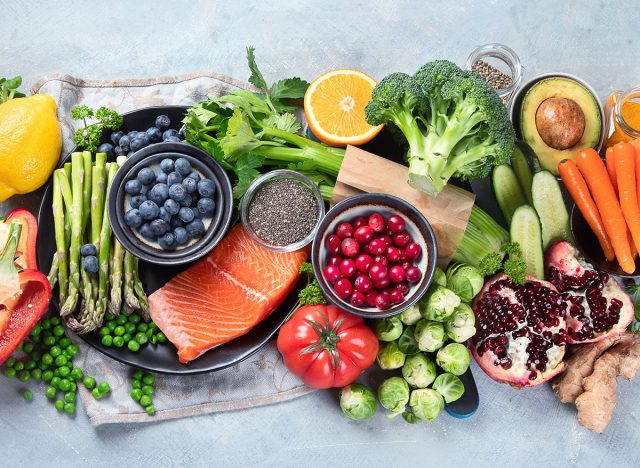The #1 Cause of High Blood Pressure, Says Science — Eat This Not That - Eat This, Not That
An estimated 100 million Americans have high blood pressure, also known as hypertension, a condition, "when your blood pressure, the force of your blood pushing against the walls of your blood vessels, is consistently too high," according to the American Heart Association. Hypertension can lead to serious health problems like stroke or a heart attack. Eat This, Not That! Health spoke with Dr. Jennifer Wong, MD, cardiologist and medical director of Non-Invasive Cardiology at MemorialCare Heart and Vascular Institute at Orange Coast Medical Center in Fountain Valley, CA who explained what causes high blood pressure and how to help prevent it. Read on—and to ensure your health and the health of others, don't miss these Sure Signs You've Already Had COVID.

Dr. Wong states, "Blood pressure is the force against the walls of our blood vessels. Higher blood pressures over time can lead to hardening of the arteries and plaque buildup within the arteries. This leads to decreased blood supply and oxygen to organs. Heart attacks can occur when there is a lack of blood flow to the heart and strokes can occur when there is a lack of blood flow to the brain. The systolic blood pressure is the peak pressure during a heartbeat while the heart is 'squeezing.' The diastolic blood pressure is the lowest pressure between 2 heart beats while the heart is 'relaxed'."
RELATED: This Common Habit Makes Your Heart Disease Risk Soar

Dr. Wong explains, "Normal blood pressure is the pressure generated by the heart pumping that perfuses the organs without causing damage to the arteries over time. Generally, a normal blood pressure is considered < 120/80 mmHg for most age groups. Infants and toddlers have lower normal ranges. Current guidelines set the same normal range for men and women but more recent research suggests women may be damaging blood vessels at lower blood pressures traditionally considered normal in men such as a systolic blood pressure between 110 and 119 mmHg. People with normal blood pressure (systolic 90-120 mmHg and diastolic 60-80 mmHg) do not need medical intervention. Healthy lifestyle including regular exercise and a healthy diet should be maintained."
RELATED: The #1 Cause of Diabetes

"People with elevated blood pressure (systolic 120 to 129 mmHg and diastolic <80 mmHg) have a high probability of developing hypertension," says Dr. Wong. "A healthy lifestyle can help lower the blood pressure, preventing the development and complications of hypertension.
Stage 1 hypertension (systolic 130 to 139 mmHg or diastolic 80 to 89 mmHg) is also treated with a healthy lifestyle initially. Medications may be needed if the blood pressure falls in this range on multiple readings for those with other cardiovascular risk factors.
Stage 2 hypertension (systolic at least 140 mmHg or diastolic at least 90 mmHg) is generally treated with medications. A healthy lifestyle is just as important for preventing the complications of hypertension.
A hypertensive crisis occurs when the blood pressure rises quickly with systolic blood pressures > 180 mmHg or diastolic blood pressures > 120 mmHg. Immediate organ damage can occur and emergency treatment should be sought if there are symptoms of stroke, headache, visual changes, dizziness, chest pain, or shortness of breath."
RELATED: How to Get Rid of Inflammation Quick, Says Science

Dr. Wong explains, "For most people with hypertension, there is no identifiable cause. Occasionally, some people have hypertension caused by an underlying condition such as kidney disease, adrenal gland tumors, or thyroid disorders. Some people also are susceptible to higher blood pressures from certain medications such as birth control pills, some decongestants, as well as some over-the-counter pain relievers. Illicit drugs such as cocaine and amphetamines may also raise blood pressures."
RELATED: #1 Sign You Have One of the "Most Deadly" Cancers

According to Dr. Wong, "A healthy lifestyle can help prevent some of the damage that can occur with hypertension as well as help lower blood pressure to some extent. Helpful habits include limiting salt intake to 2.3 grams of sodium per day, participating in moderate intensity aerobic exercise 150 minutes per week, and limiting alcohol intake. The Dietary Approaches to Stop Hypertension or DASH diet has also been shown to reduce blood pressure. This is a diet high in vegetables, fruits, low-fat dairy products, whole grains, poultry, fish, and nuts and low in sweets, sugar-sweetened beverages, and red meats. The diet is rich in potassium, magnesium, calcium, protein, and fiber but low in saturated fat, total fat, and cholesterol."
RELATED: The #1 Cause of Obesity, Says Science

"Hypertension has been described as a 'silent killer' as often there are no symptoms while causing significant damage to the heart, kidneys, brain, eyes and blood vessels," says Dr. Wong. "Cardiovascular complications of heart disease include heart failure, ischemic heart disease, stroke and intracerebral hemorrhage. The risk of death from heart disease or stroke doubles for every 20 mmHg increase in systolic blood pressure or 10 mmHg increase in diastolic blood pressure." And to protect your life and the lives of others, don't visit any of these 35 Places You're Most Likely to Catch COVID.
Comments
Post a Comment